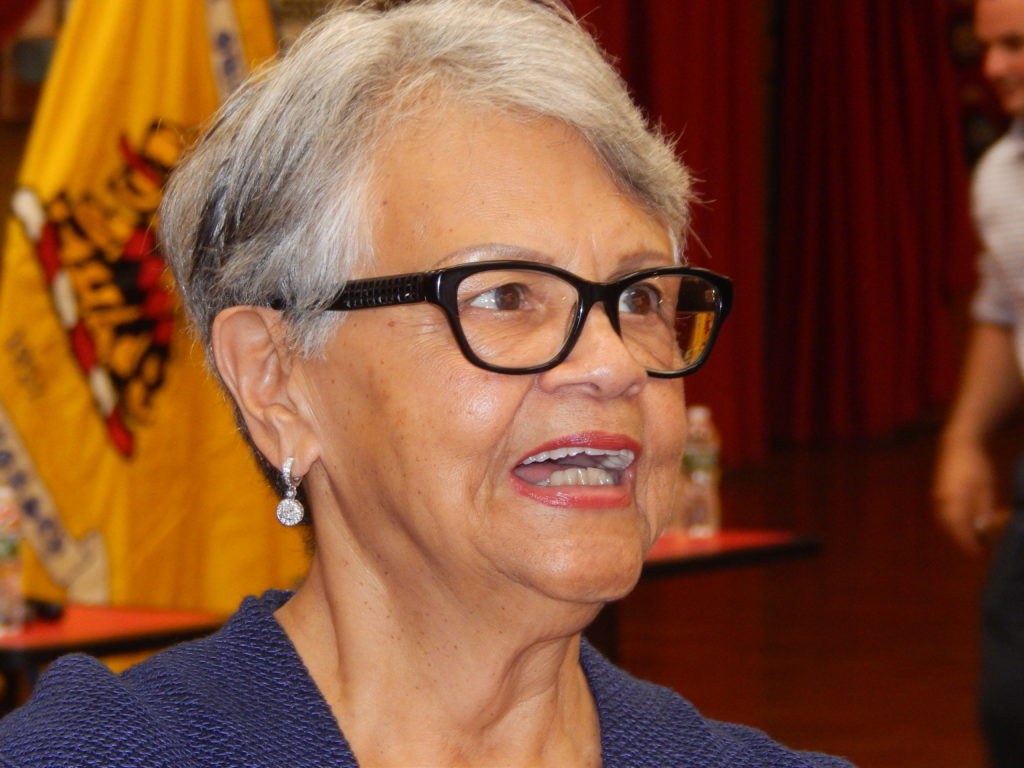Who Runs the World? Girls! Just Kidding, it’s Men!

Last week I described how NJ’s redistricting process elevates and protects males politicians at the expense of their female counterparts. (For the uninitiated, redistricting is that once-a-decade chance for NJ politicians to redraw their own political boundaries for the next decade.)
I began by describing how NJ’s hyper-partisan redistricting process disenfranchises independent voters. But the biggest losers when the new maps are drawn will probably be any woman who might want to run for office in NJ.
From last week:
“There are 10 slots on next year’s redistricting committee, 5 Democrats and 5 Republicans. Most of the names currently in circulation are male names both sides. And when I say ‘most’ I’m talking 80-90% range.
Likewise, it’s an all-male shortlist of presumptive democratic commissioners, each uniquely suited to shore up and further entrench specific sitting (male) incumbents. One potential commissioner is law partners with a sitting NJ Senator, to share just one especially patriarchal example of men boosting the prospects of other men for decades at a time.”
Redistricting doesn’t explain everything. But it kinda felt like a down payment on an explanation on why, in the year 2020, NJ’s political class is still dominated by straight, old white guys.
So let’s keep digging, shall we?
How bad is it?
Before we dive into hypotheses and anecdotes, let’s do a little math.
Of the top 20 largest towns in New Jersey, only Cherry Hill (#14) has a female mayor. One out of 20 equals 5%.
NJ has never sent a woman to the United States Senate and our state’s congressional delegation is currently 14% female. Prior to Bonnie Watson Coleman’s election to Congress in 2014, NJ “boasted” an all-male squad for over a decade.
Likewise, Trenton’s General Assembly remains stalled at (or about) 30% female, the same paltry ratio as when I got into this game in 2004.
With scores like 5%, and 14%, and 30% percent, there’s nowhere to go to but up, right??
Well, no.
Barriers remain. The party line and machine politics preserve the status quo that got us here. There’s good old fashioned sexism to deal with. And a rigid, persistent glass ceiling.
Not all the barriers to gender parity are easy to define. Sometimes, you need anecdote to make the point.
2008
I did communications for the late John Adler’s Congressional race back in 2008. Swept into Congress on Barack Obama’s coattails Adler was swept back out by the tea party wave in 2010 after only one term.
John and his wife Shelley were the consummate power couple, both Harvard-trained lawyers with four bright, handsome sons. For the entire time I was on staff, Shelley was always on hand to lend support. Sometimes that meant hours of campaign grunt work like sitting on the floor putting thousands of yard signs together. Other days, that meant raising their sons alone while John was out on the trail doing 15 hour days.
Shelley really was John’s secret weapon in many ways.
When Shelley Adler ran for Congress to re-claim her late husband’s seat in 2012, the odds were long, chiefly because she lacked what John had in her: an utterly selfless spouse willing to subvert everything for the sake of someone else’s political campaign.
Society has surprisingly inflexible expectations about how labor is divided between a husband and a wife. He mows the grass and she changes the diapers, for example.
And my experience tells me there aren’t many male Ivy Leaguers willing to put their career on hold to support his wife’s political aspirations.
I’m sure there are exceptions to this paradigm. But not enough to put a dent in NJ’s political glass ceiling.
But societal expectations, that’s just another small part of the story.
There’s more.
Party Bosses & Closed Primaries
Dr Patricia Campos Medina is a long-time political and labor activist. She cited NJ’s closed primary system as an obstacle for women looking to break into politics.
“Open primaries would bring more competition to primary races and would allow more women to challenge incumbent candidates.” Dr Campos Medina told InsiderNJ. “Incumbents in New Jersey are often protected from any real challenge in the primary elections from anyone not connected to the machine.”
That sentiment was echoed by Anjali Mehrotra, president of the National Organization for Women of New Jersey
“With its male dominated political party system, the nomination process for candidates is a significant hurdle for women seeking political office in NJ,” Ms Mehrotra told InsiderNJ.”Of the forty-two county party chairs, only eight (19%) are women. We need to address this as not just an equality but an equity issue.”
County chairs are the ultimate gatekeeper, choosing who makes the ballot and who doesn’t. So when 81% of the gatekeepers are men, you’re gonna end up with males overwhelmingly overrepresented in government at all levels in NJ.
Jay Lassiter is an award-winning writer, videographer, and podcaster living that quarantine life in Cherry Hill, NJ. He’s on Twitter @Jay_Lass.








Leave a Reply